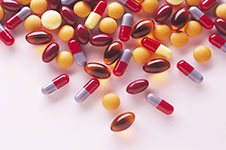 Any drug for therapeutic purpose has one or more active ingredients that provide pharmacological effect/s. In order to deliver an active ingredient into the body a ‘carrier’ is needed and this is the function of an excipient, the inactive ingredient of a drug.
Any drug for therapeutic purpose has one or more active ingredients that provide pharmacological effect/s. In order to deliver an active ingredient into the body a ‘carrier’ is needed and this is the function of an excipient, the inactive ingredient of a drug.
The word excipient is derived from excipere, Latin for ‘except’. Meaning it is the ingredient of a drug ‘other than’ the active ingredient. Therefore, the function of the excipient is carrying or delivering active ingredients of a drug, supporting drug stability, improving patient acceptability or aiding the drug manufacturing process.
Ideally, excipients are inert. It should not react with active or other ingredients in drug formulation and not cause adverse effects or reactions in sensitive patients. However, it has been reported that some excipients like sulphites, propylene glycol, benzoates, aspartame, saccharin, lactose, soya lecithin, oleic acid, benzyl alcohol and sorbitan trioleate have caused reactions in some patients.
In the pharmaceutical industry, excipients could contribute to the manufacturing process or are contained in the pharmaceutical product. The functions are classified as:
- diluent (to provide bulk as filler or bulkier agent)
- antiadherent (to reduce adhesion between the powder and to prevent a drug from sticking)
- binder (to bind the ingredients together and/or add volume to active ingredient),
- disintegrants (to expand and dissolve the tablet when it is in contact with wet),
- lubricant (to slow disintegration and dissolution)
- glidant (to reduce friction of particles to improve the flow of powder in the manufacturing process)
- colouring agent (to enhance the appearance of the drug)
- coating agent (protection from the environment and to aid swallowing)
- flavouring agent (to enhance taste)
- preservative agent (to prevent the drug deteriorating)
As there are various types of liquid, tablet, cream, capsule, nasal, suppositories, patch, liquid injection medications, the excipients also vary. Some types of excipients used in drug formulation are inorganic and sugar compounds, synthetic polymer, colloidal substance, acids, salts, oil, sweetener, modified fat, natural or synthetic colour, preservative and flavouring agent.
Trans Chem has an extensive network of overseas suppliers, some exclusively, and attend all International Trade shows constantly sourcing new and innovative products and suppliers, so if you can’t find the raw material you need in our Product Library, contact us and we WILL source that product for you.
Aside from APIs, Trans Chem actively sources Amino Acids & Vitamins, Chelates & Minerals, Cosmetics & Personal care ingredients, Excipients, Food & Beverage ingredients, Stockfeed & Animal Nutrition, Nutraceutical powders & fluids, Veterinary Pharmaceuticals & Animal Health, Herbal Extracts and other key ingredients.

 +61 (0) 2 9887 1688
+61 (0) 2 9887 1688
